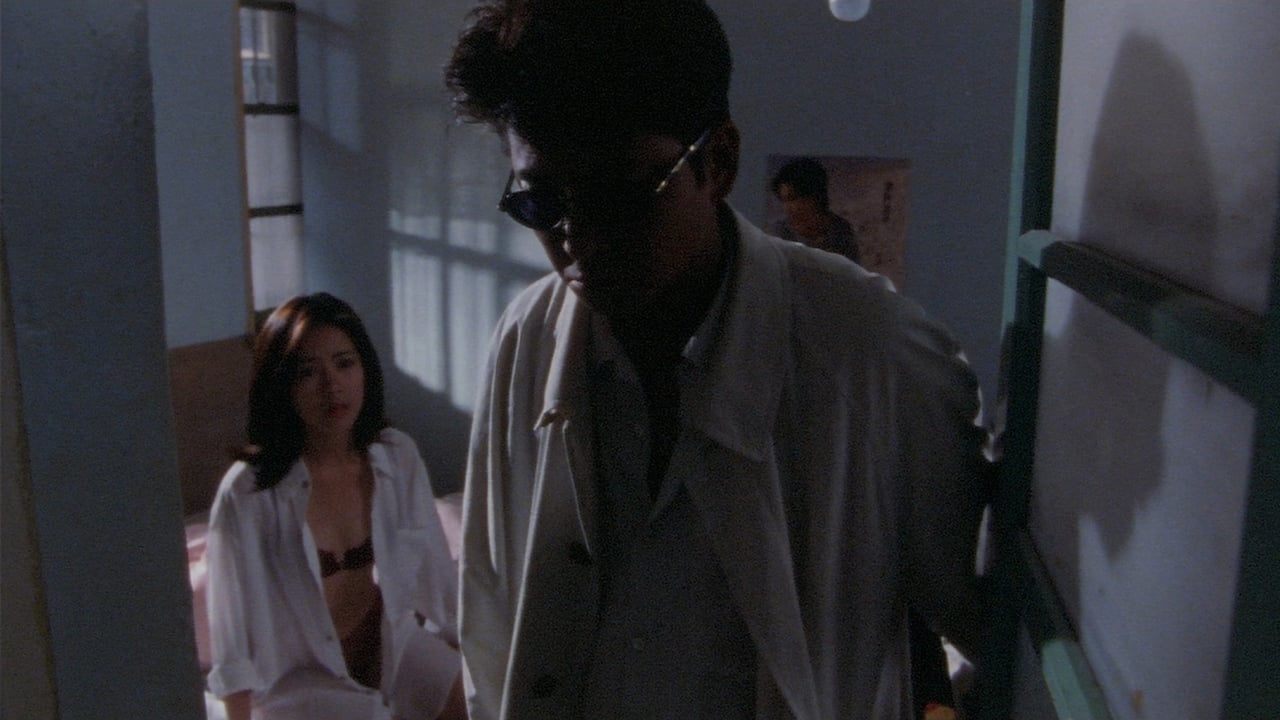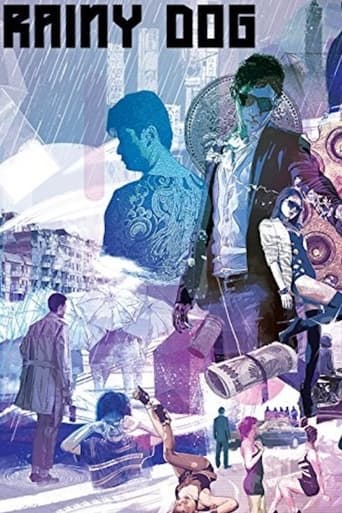Sexylocher
Masterful Movie
Janae Milner
Easily the biggest piece of Right wing non sense propaganda I ever saw.
Brennan Camacho
Mostly, the movie is committed to the value of a good time.
Sarita Rafferty
There are moments that feel comical, some horrific, and some downright inspiring but the tonal shifts hardly matter as the end results come to a film that's perfect for this time.
Leofwine_draca
RAINY DOG is another Yakuza story from the prolific Japanese director Takashi Miike and an unconnected follow-up of sorts to his SHINJUKU TRIAD SOCIETY. This one tells the tale of a Japanese assassin who now lives in Taiwan, eking out a living performing jobs for a local crime boss. The film has a grim and depressing feel to it, and is also very slow paced without much of the directorial style or vibrant action we've come to expect from the director. Instead it's a world of nihilism and nastiness, full of driving rain and abuse. The film's heart involves the main character's relationship with his son, an estranged boy who is thrown into his care without warning. I found the experience dull and dreary and lacking imagination, not one of the director's better films.
Polaris_DiB
Really, movies of this sort are more expected from Takeshi Kitano than Takashi Miike. Sentimental, lonely gangsters who wander the streets silently and try to escape the senseless, but ultimately fatalistic, violence that surrounds their lives. However, Miike tones it down a bit for this second in his "Black Society Trilogy", providing a heart-felt and strangely hopeful little art piece despite its bleakness.Yuji is a Japanese hit-man in Taipei. He lives basically day by day, killing people for his boss and then going home to sleep. Then an old squeeze he doesn't even remember stops by and drops off a little kid, Chen, claiming that the kid is Yuji's son. Faced with responsibility... Yuji basically goes along as if nothing happened. However, with this little kid following him around, and spending a few days with a just as lonely prostitute, Yuji decides its time to go somewhere. And his next hit provides his new means, though of course it also provides his greatest obstacle.Like Shinjuku Triad Society, the first film in this thematic trilogy, as much care is put into the emotions of the "badguy" or foil as the main character, and they honestly share more in common than is typical in most films. In this case, they even have brunch together while discussing their ultimate loneliness and the fact that they know they're going to have to face each other eventually, the type of scene that makes Heat such a success (only without that sense of star power). And some surprising twists and idyllic scenes make this movie more than unpredictable enough to be worth it for fans of Yakuza flicks, Miike films, Beat Kitano movies, and otherwise.I wouldn't be surprised if the screenwriter has scene Once upon a Time in the West. This movie seems almost like an unofficial prequel, only Asian. Nevertheless, it's a very beautiful and thoughtful film, and more effective emotionally than sensationally than Miike's greater oeuvre. In other words, it's a must-see for just about anybody interested in this type of movie.--PolarisDiB
maurazos
I have to say that this time I enjoyed a Miike's movie (and that is not too usual on me, because, to be honest, Takashi Miike is a director that sometimes is difficult for me to understand). I loved the story, because it shows the world of yakuza into today globalization (it is the story of a Japanese yakuza, Yuuji, who has to run away Japan and get a refuge in Taiwan and get on business to Taiwanese triad societies). That is the same Takeshi Kitano did some years later in his famous "Brother" (2000). But, better that Kitano's movie, this Miike's film shows a more real yakuza atmosphere, with sad stories and broken lives within the frame of Taipei low depths, and not those Kitano's Armani-dressed yakuzas that make violence something symbolic and aesthetic. I insist that broken lives is the most emotive point of this film: not just the main character (Yuuji, played by Sho Aikawa), but whoever is sentimentally linked to him: the little son he had with a Taiwanese woman and the prostitute who finally helps him when his life is in danger). The end is probably the best of the film: when one can believe is going to see a not very original and foreseeable Hollywood-style end, suddenly things change...
MiztaBungle
Director Takeshi Miike takes a break from his usual trademark ultra-violent comic book style action to bring us this slow paced, yet interesting drama, portraying an ex-Yakuza hit-man exiled to Taiwan for reasons unknown. The rain throughout the movie not only sets the mood but also symbolises the monotony of normal, everyday life felt by the protagonist as a contrast to his previous life as a Yakuza. Coming to terms with his new life, he does small time hits for a local gang and manages to maintain some stability and a sense of purpose in the otherwise meaningless existence of a hit-man. However, his world is turned upside down when a woman he doesn't remember leaves him with a child who is supposedly his. As he goes about his business of contract kills, his newly acquired 'son' follows him with fascination, observing and mentally clinging onto his alleged father in a cold, lonely and rainy city. Things get even more twisted when he befriends a prostitute and here starts the mingling of this unlikely trio, a subtle touch, typical of the twisted world of Miike. Overall, a heart warming yet poignant drama depicting the harshness of life, comparable to Luc Besson's Leon or Takeshi Kitano's Kikujiro no natsu.

